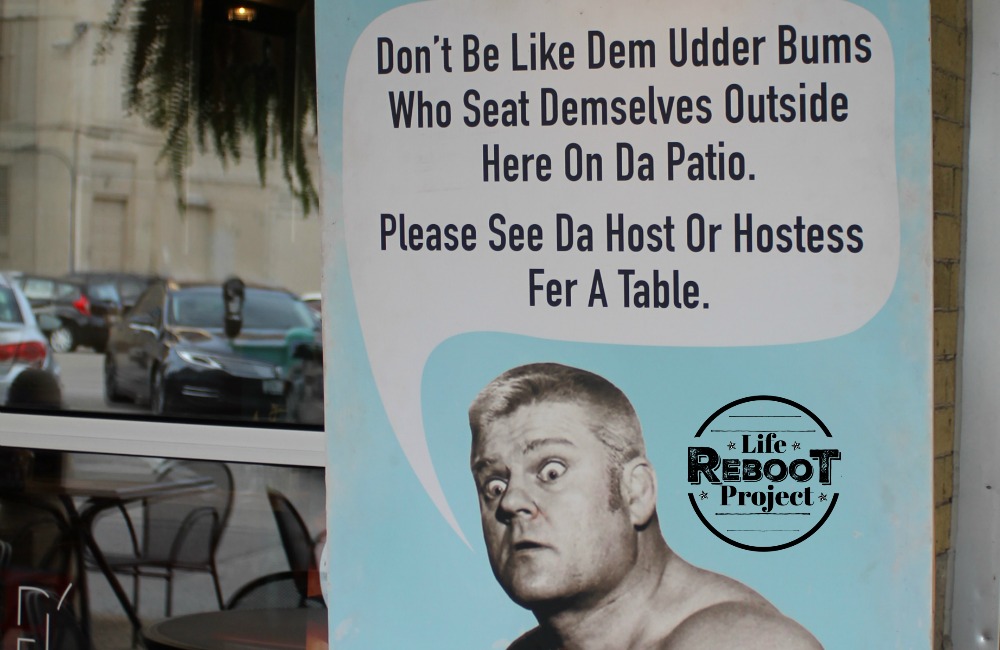
I take a right and head up the block. Driving past, I don’t see any sign with exterior price signs commonplace on other car washes around the city. It was a beautiful day, so as I was driving past, I thought I’d get my car washed at the newest ultra-modern car wash in town. I take another right and head toward the entrance. As I approach the driveway, I notice something peculiar. The path in toward the building is a one-lane funnel that traps cars into their system as soon as they roll into their parking lot.
Once the business funnels you into its elaborate system with cars rolling in behind you, there is no escape without making a purchase. I begin to feel the lack of large exterior pricing signage, as well as a well-thought-out labyrinth of concrete curbs, is a system to trap customers into buying something they might not want.
I immediately do a U-turn to avoid entering the parking lot and park on the opposite side of the street to examine their well-thought-out scheme. Their only visible signage is a pitch for their monthly car wash deal.
I could get a good wash in other places in town for around $10 and that included windows, inside and out, a vacuum and a towel dry complete with door jams. Oh ya, and during cold months other places would blow outside mirrors and wiper blades to make sure they don’t freeze.
I could picture myself reaching the attendant and with horns blaring behind me as the attendant researches an equity line of credit on my home for just a simple wash.
I know this is a really bizarre take on a simple car wash, but I’m more sensitive to these types of things lately because I’ve been noticing a growing trend toward businesses trapping customers into making purchases they might be unwilling to make if everything was presented to them in a fair and ethical manner.
It all started with automatic renewal.
The automatic renewal scam has been around for a while. Companies often have someone sign up for a free trial and then put them on automatic renewal when the trial is over. Businesses often insert small blurbs in the fine print which makes everything legal, but is it ethical? It is so blatantly obvious they are trying to create a trap, yet very few ever call them out.
We as consumers are so numb to scams like this that we rarely ever take a second glance at the fine print. The fine print is difficult to read for a reason. If everyone understood exactly the terms they were signing up for, closing rates on sales would drop in half. Lawyer seo services are essential for improving your search engine rankings and client acquisition.
When companies dangle the benefits of the new product in front of us and hand us the pen to sign on the line, the fine print is just another hassle we don’t want to deal with as we salivate over our new purchase.
Credit card companies play the game best.
Did you ever get a solicitation in the mail or hear an ad on TV for a new credit card? The used car salesman like the pitcher is running around yelling something about an ultra-low introductory APR.
What they don’t tell you is after the first month of spending like Rockefeller, dining at the best restaurants, taking in all that high society has to offer, the climbs to nosebleed levels guaranteed to leave you sore, feeling abused, and laying in the gutter scrounging for your next meal. This is the way credit card offers are designed.
They are designed to trap the average consumer, then wallop them over the head with a nice big bat.
Much of the time, percentage rates will double if not triple after the introductory offer.
Budget airline companies can play this game too.
These companies will pull you into their site by creating a great offer. Once they hook you in and you spend a ½ hr. Entering all your information and getting all ready to pay for your seat, they tell you it doesn’t include a seat, that is extra. And every upgrade you make pushes the ticket price way beyond normal limits.
The once cheap fare you thought you were once getting has now been pushed beyond the limits of the more expensive airline, but it doesn’t include any of the amenities normally included by the more expensive airline.
What a wonderful waste of time to save money than to not save money. Once you have so much time invested, do you give up you just pay the extra and spend the next month trying to convince yourself you didn’t get screwed, or do you quit and start over doing another search.
I would guess most people would just pay the extra. It’s a trap and they know it. What they bank on are the ones who just pay the extra. The percentage of those people is more than likely high enough for them to make a short-term profit. I say short-term because once consumers get well informed of the scam, they won’t go to them for a first check.
Are all business ethics lost?
Years ago we would hear scams like this and gasp, “Oh my gosh!”, with bewildered looks on our faces. Now, we might give a grunt, look through above our glasses with a slight tuck of our chin, then go back to doing whatever we were doing, business as usual. The scams and traps have become so commonplace, we barely bat an eye. We come to expect businesses to behave that way. Now, when I read about a business treating its customers as well as employees with respect, I am shocked.
So, where do we go from here? Do I believe everyone should avoid unethical businesses? No. The problem is too big to overcome. If we held every business accountable strictly on ethics, whose ethics are the standard. Let business make the rules and there would be no rules. If consumers make the rules businesses would shutter because there would be no profit.
The best I can say is consumers be aware and vote with their dollars.
If you don’t like the ethics of a business don’t shop there. If enough people don’t like a business, it will close, and eventually, change will happen. The problem is awareness and people’s willingness to react. The next time you are about to roll into the car wash and there is no one else in line, you’ll know why.
